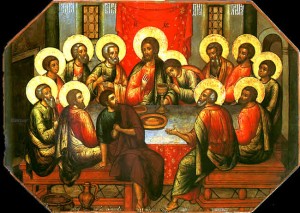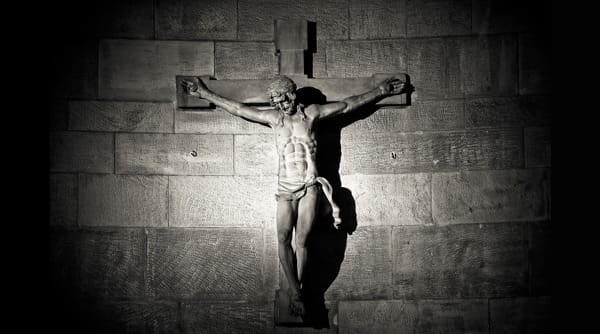 Dear Father John, I’ve always understood the term “self-gift” in the context of relationships with people, especially a spouse. Recently I learned it is also similar to abandonment, surrender and humility – self-gift to God. Evidently I’ve missed out on something very basic to our faith. I’d sure appreciate an explanation of what exactly self-gift is and what can be found in the writings of St. Frances DeSales (or others) about it.
Dear Father John, I’ve always understood the term “self-gift” in the context of relationships with people, especially a spouse. Recently I learned it is also similar to abandonment, surrender and humility – self-gift to God. Evidently I’ve missed out on something very basic to our faith. I’d sure appreciate an explanation of what exactly self-gift is and what can be found in the writings of St. Frances DeSales (or others) about it.
I don’t think you have missed out on something very basic to our faith. Instead, I think we are dealing with a simple issue of terminology. Self-gift, or self-giving, is basically a synonym for Christlike love, also known as Christian charity. This is how Jesus defined it during the Last Supper. After he gave us the new commandment to love one another as he has loved us, he explained pretty clearly what he meant by the word love: “No one has greater love than this, to lay down one’s life for one’s friends” (John 15:13). Self-giving is another way to say “laying down one’s life” for another. And so, when Jesus taught that the whole Law can be summarized in the double commandment of loving God and loving our neighbor, this is what he was referring to: giving of ourselves, and thereby giving ourselves, to God and to others.
All the other virtues, all the other commandments, are just variations on this theme; they are all connected to self-giving, either by helping us achieve a level of spiritual maturity where we are freed from attachments that inhibit self-giving (e.g., the virtue of temperance frees us from being enslaved to pleasures), or by directing our capacity for love in an appropriate manner (e.g., the virtue familial piety, by which we give priority of affection and attention to our family members, in accordance with the Fourth Commandment). Similarly, all sin is a variation on the theme of self-indulgence or self-aggrandizement; as inordinate self-love or self-attachment, sin is the contrary of self-gift.
St. Augustine famously summarized this core vision of Christian spirituality by describing the whole human family as being divided into two groups, or cities. Each city is defined by one of two loves. The city of man is populated by those whose self-love is strong that it excludes love for God (and neighbor); the city of God is populated by those whose love for God is so strong that they are willing to deny or sacrifice themselves (this is “self-giving”) for God’s sake. In this sense, Christlike love, or Christian charity, can be referred to by other synonyms too: self-forgetful love (Blessed Mother Teresa’s favorite), self-sacrificial love, self-denial…
So your discovery of new applications of the term self-gift is not actually a discovery of some new element of the faith, but rather an enriching of your understanding of the key, foundational element that you have always known about: love.
We could continue discussing this idea from a dizzying variety of perspectives: the mutual self-giving of the Trinity as the origin of all love; the difference between the virtue of self-giving and the feeling of love; the challenges to love; the means to grow in love… Maybe it would be best, though, simply to remember the relationship between self-gift and the Cross.
In this fallen world, burdened as we are by our fallen human nature, true self-giving is always, in some way, painful and difficult. Our fallen nature has a built-in tendency to self-indulgence. This clashes with our natural vocation to mirror God’s goodness through self-giving. So we experience in ourselves a desire to be heroic in our love for God and others, but at the same time we experience a strong internal resistance to let go of our own self-centered attitudes and habits. To succeed in obeying our higher calling, whether by being patient in traffic jams or by forgiving our spouse, we have to overcome that resistance; we have to crucify a part of our selves, denying our fallen nature one of its strong desires. Sometimes this fallen nature yells and screams in rebellion, like a little child throwing a tantrum. Usually, however, when we do what it right, what is truly in harmony with our authentic nature as God’s children, the momentary pain of self-denial is quickly overshadowed by a deeper interior joy. We experience the truth of what Jesus taught us: “It is more blessed to give than to receive” (Acts 20:35). As we grow in grace and virtue, we begin to experience less resistance, and we even begin to look forward to the Cross, as a way of showing God that we really do love him, that we really do want to give ourselves instead of indulge ourselves. But even then, each act of self-giving also includes, at least at the beginning, an often painful act of self-denial. The Cross ever remains that gateway to the Resurrection.
You asked where St. Francis de Sales speaks of this. His most revered work of spiritual theology is entirely dedicated to an exploration of the nature of Christlike love and how to live it more deeply. It is entitled: Treatise on the Love of God. But his other classic work, Introduction to the Devout Life, explains the many manifestations of Christlike love as they appear in one’s efforts to be a faithful follower of the Lord in the midst of daily life.
Yours in Christ, Father John Bartunek, LC, ThD





